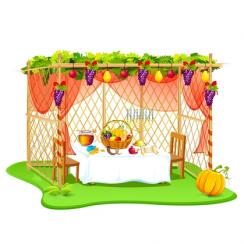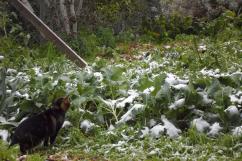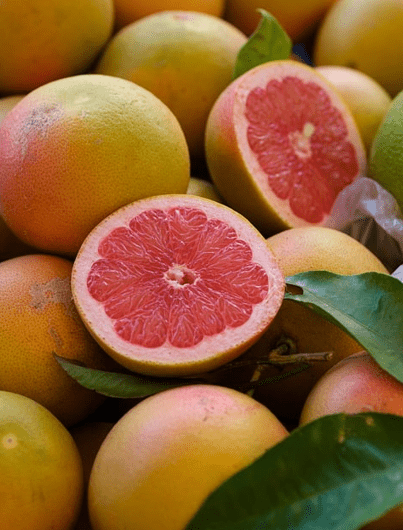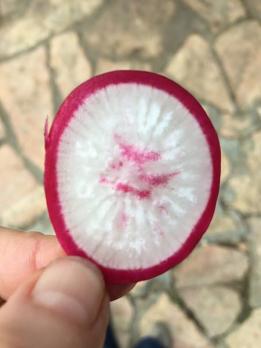Yesterday, a foggy day here, the sun was at its highest point in the sky during the year. It was the longest day – the summer solstice. From today on the sun will get lower in the sky and the sunsets will come earlier.
TRASH OR TREASURE?
This week we opened a new compost pile, it is healthy and rich, and we also just received a shipment of disposable utensils and sandwich bags, all made from corn that are all biodegradable and will return to become earth. They do not produce trash. More information about Ecogo can be found in their site. The initial products you will find under the tab " Bio-degradable Kitchenware".
Should I begin with the trash or the treasure? They are basically the same thing … Nature does not produce too much and always works in cycles.
In Hebrew, זבל, means manure and זיבול means to add it to the earth. Both are necessary when talking about healthy organic crops.
Nature produces all it needs. Something we currently perceive as trash (not good produce) is really tomorrow's rich manure which we will use to enrich the soil.
See the genius: our organic crops produce for themselves the required enrichment for their future.
Because we constantly work our garden, when a certain crop ends, we clear the remaining plant to make room for the following crop. What should we do with what's left?
Overripe fruits and vegetables and insect infested parts go to the chickens who are happy to eat them.
Photo: What's for lunch today?
Stung fakuses, watermelon leftovers, rotten sweet potatoes and peppers…. What wealth!!! And it's even a balanced meal when it has bugs. We have more than the chickens can eat, so they get the parts that are most suitable for them.
A large part of the weeds and plants remain in the garden as a ground cover or are cultivated directly back into the soil where they degrade and return to the earth, both enriching it and ventilating it with air.
And yet, we still have plenty of organic matter to dispose of. In the average home, 50% of the garbage is organic (organic matter is any product of a living being, animal or plant). For us, it is almost all organic.
What do we do?
First of all, We do our best not to produce garbage of any kind.
Second, we do not mix organic and non-organic materials. The combination of organic and non-organic substances produces toxic gases, because the organic matter cannot fully decompose and the non-organic material binds to nitrogen. Separation of our trash prevents this toxicity and will leave you with dry and not smelly garbage.
Third, we compost the organic garbage, which reduces the amount that requires evacuation and a place to dump it.
Nature knows how to turn our organic garbage into compost – ("fertilization" in Hebrew) and thus it should be.
A few ways to restore organic waste to the ground easily – and not have to mess with compost:
1. Give it to your neighbor’s chickens (or our chickens).
2. Throw it in a big pit in your yard (or in our yard). The earth knows how to handle it very well even without us.
I do something similar. We have in our garden a space between two terraces that creates a sort of cavity where we throw all the waste.
The pile heats up and decomposes by itself because that’s what happens to organic matter. However, sometimes (actually quite rarely, not at all like the experts advise), I mix it and once I even watered it… and then like magic, we have compost. I am always surprised by the process all over again. It is easier than you think. 🙂
It always happens, "suddenly" we have soil that smells like clean spring, that crumbles easily when touched with your hands, and you can smell it … a bit like the smell of earth after the rain… the smell of health and promise.
This health is actually the natural mineral wealth found in compost, which exists in a balanced fashion suitable for crops. The minerals are quickly absorbed by the plant.
Also, mixing compost into the earth regulates the water in the ground. In heavy soil it will improve drainage as required by the crops. In lighter soil it will improve the water holding capability necessary for growth.
The microorganisms in the earth (they are actually what makes our soil fertile) love compost, thereby reviving the earth even more.
We have two compost pits: One has just been emptied and was returned to the garden as needed. It is now receiving all the new yuck so it can turn it into precious material 🙂
And the second is still working its magic …
We wish you a week full of everything you need for healthy and happy growth.
Yours,
Maggie and the garden staff
And we can expect in the boxes (draft only)
Green pepper
Coriander
Kale
Carrots – maybe some broken
Butternut Squash
Lettuce
Cucumbers
Tomatoes
Potatoes
And Melon
Large baskets also:
Zucchini
Eggplant
Chives
In our fruit baskets:
Personal Watermelon
And Apricots
Larger ones also:
Lychee
And bananas








